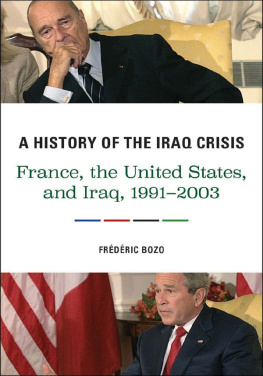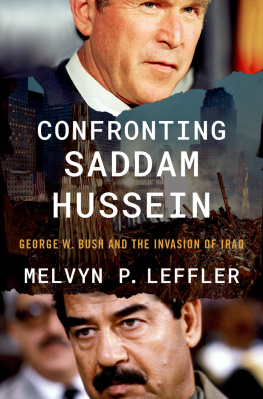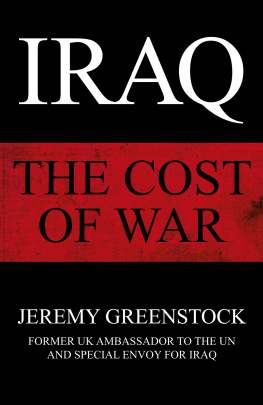Introduction
T HE ALLEGED FACTS of power and weakness that characterized the transatlantic debate over the use of force in Iraq were theoretically flawed and historically misleading. Theoretically, the facts of American power appeared to reduce the concept of power to its military dimension at the expense of, or over, anything that might expose U.S. weakness. Historically, the facts of European weakness neglected the postwar transformation of Europe into a union that gives its members the nonmilitary power they lack individually. All together, the argument conveyed a sense of lasting American omnipotence for what was no more than passing preponderance, while providing a caricature of Europe as an avid consumer of American capabilities and a demanding producer of additional security responsibilities for the United States.
A conversation that starts with a cursory Me Tarzan, you Jane is not conducive to a dialogue. Absent a dialogue, there is little room for consultation, and without consultation there is no alliance of sovereign countries but, at best, coalitions: one coalition per mission, one mission per coalition, organized by the preponderant powerthe sheriff in the possewith states that are willing to join for reasons of their own, even if they are not sufficiently capable for, or directly relevant to, the mission.
This book is not about Americas power and the weakness of its main European alliesBritain, France, and Germanybut about the power and the weaknesses of both, the United States in its prevailing condition of preponderance, and the states of Europe in their new but unfinished incarnation as a European Union (EU).
The facts of American power are not in doubt. At home, knowledge of these facts sharpened citizen anger at the horrific events of September 11, 2001, which could not be allowed to stand unanswered, and led most Americans to rebel against like-minded allies who grew unwilling to stand with their senior partner after the broad consensus achieved in Afghanistan collapsed over Iraq. Without a doubt, much that has been learned over the years has weakened the U.S. case for war in Iraq, as it was initially presented by the Bush administration and embraced by much of the country. By now the nations anger is aimed no less at the decision proper than at its execution: more specifically, an incapacity to prepare for the aftermath of the war, on the basis of what was known at the time, and an unwillingness to acknowledge mistakes and make related tactical adjustments until it proved too late. After a relatively easy, and remarkably effective, military campaign in Iraq in the spring of 2003, the U.S. failure grew out of a devastating combination of an inept postwar strategy for peacekeeping and an ill-prepared civilian management for peacemaking. Nearly four years into the war, the former was confirmed at the highest levels of the Bush administration in the days and weeks that followed Secretary Donald Rumsfelds replacement in early November 2006, after the latter had been demonstrated repeatedly on the ground during the previous years.
The decision to wage war on Saddam Husseinafter the arithmetic of risk taking had been seemingly modified by the attacks on New York City and the Pentagonwas made by George W. Bush on behalf of America and with the nonpartisan support of Americans. In its immediate post-September 11 context, the war was widely viewed as the extension of the existential war that had begun with the earlier intervention in Afghanistan. Only subsequently did the mounting evidence of failure help turn it progressively into an imagination wara war of choice rather than a necessary war. The progression is not without significance: this was an American war that received the near unanimous support of the U.S. Senate before it became Bushs war at home and a civil war in Iraq. Conditions were different in Europe, where the case for war never proved convincing, even in the countries that joined the coalition and as other acts of terror took placeMadrid on March 11, 2004, and London on July 7, 2005, among other such targets. Indeed, after a short-lived moment of collective mourning, the post-September 11 debate in Europe was an intra-European debate over American power before it became a Euro-Atlantic debate over Iraq; and even when it became the latter, the debate was narrowly limited to the war in Iraq rather than extended to its broader context of the long war of September 11.
The pages that follow, however, are not designed as a historical narrative of this multidimensional debate, both within Europe and with the United States, and its consequences. Rather, they present a historical interpretation of how and why the decision to wage war in Iraq came to be endorsed by some of Americas main European allies (especially Britain) and opposed by others (especially France and Germany).
Written into that interpretation is the assumption that there was not much the allies could do unless they acted together, which, of course, they did not do. Bush and his administration understood that basic fact of transatlantic relations better than their interlocutors: no single European state can effectively derail, deflect, or assist an American decision deemed to be of vital significance to U.S. security interests because none can show enough weight to act decisively as an effective counterpart to U.S. leadership, let alone an adversarial counterweight of American power. That ability to influence America for the better can only be exerted by Europe as a union: it is that ability that was squandered by Tony Blair, Jacques Chirac, and Gerhard Schroeder, as their divisions left them with little tangible influence on the United States and, accordingly, on the war that became the centerpiece of the post-September 11 security agenda.
The heads of state and government that are at the center of this book were the architects of the most serious crisis in transatlantic relations since the mid-1950s, when an agonizing debate over the terms of Germanys rearmament, soon followed by a dramatic clash over an Anglo-French attempt to reassert their status and influence in the Middle East, threatened to derail the Atlantic Alliance and kill any serious prospect of European integration. Each of these men, however, was an agent of his countrys traditions, interests, attitudes, and policies. They were all, therefore, the victims not only of their own delusions but also of their nations illusions.
To be sure, more than any of his predecessors, a domineering and righteous George W. Bush gave his critics in Europe a target that proved particularly conducive to hostility and even bellicosity. Surfacing after Europes pledges of total solidarity that were extended over the attacks of September 11, Bush found such an antagonistic tone understandably offensive, first coming from Schroeder during the German elections of September 2002 and next coming from Chirac during the weeks of confrontation in early 2003. Yet reducing the crisis that followed to issues of personalities would neglect a more decisive elementthe fact that neither Bush and Blair nor Chirac and Schroeder changed the established terms of their countries relations with one another: terms of estrangement between France and either the United States or Britain, terms of endearment between the United States and either Britain or Germany, terms of disparagement between Britain and either Germany or France, and terms of entanglement between them all. As a result, all four men played the hand that their countries had handed themthe forceful hand of preponderance for a righteous America, the principled hand of acquiescence for a faithful Britain, the determined hand of intransigence for a quarrelsome France, and the ambiguous












